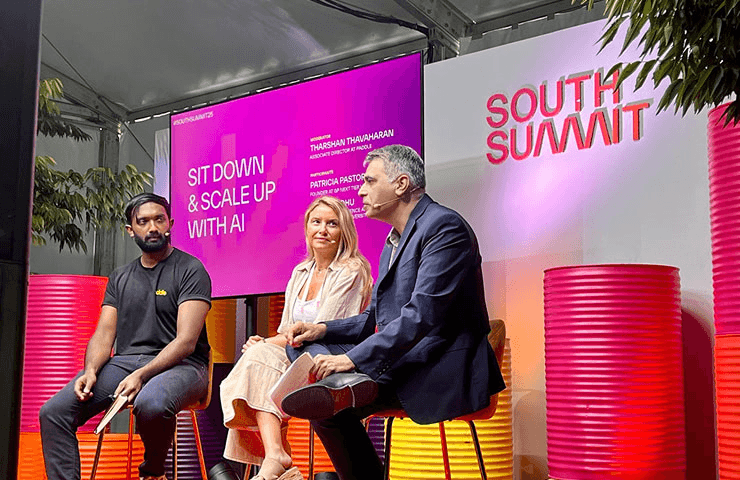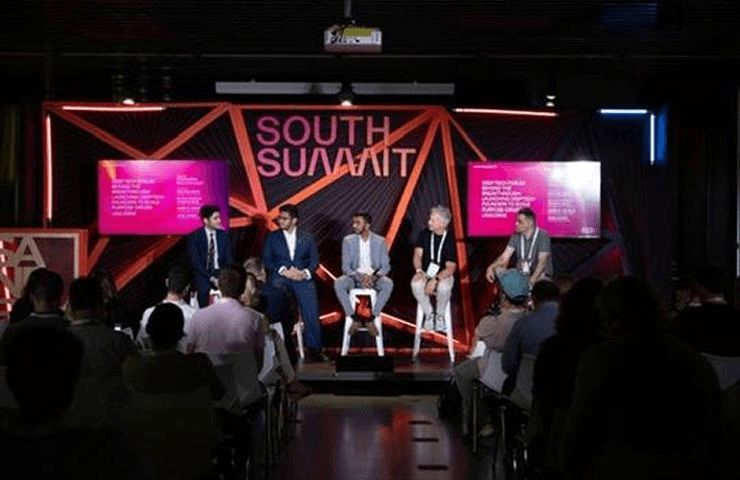The New Rules of AI-Driven Innovation: Lessons from South Summit 2025 with Ikhlaq Sidhu

Key insights from South Summit 2025 on measuring AI impact, scaling with intelligence, and why people—not patents—drive breakthrough innovation.
This year at South Summit 2025 in Madrid, I had the opportunity to participate in a series of conversations, looking at the more fundamental questions about how we build, scale, and measure innovation in the age of AI. Here are a few of my takeaways.
In "The AI Dividend", I joined Stephanie Griffiths, Noelia Amoedo, and Jaime Martinez Munoz to rethink what return on investment actually means when it comes to AI. It’s still early days, and most organizations are in the experimentation phase — but a few key patterns are emerging.
First, ROI can’t be reduced to just cost savings or revenue. We must also account for trust, risk mitigation, human empowerment, and — in the case of public institutions — inclusiveness and transparency. ROI should be contextual: for a startup, it might mean speed of iteration; for a government, it could be data sovereignty. As Noelia mentioned, you might end up optimizing a process that’s irrelevant in a year. That’s why leaders need to think beyond automation and consider transformational potential — intelligent agents, real-time decision-making, predictive systems.
Some teams are trialing "ticketing" approaches to track real-time AI impact, while others are learning to shift strategy by adopting a "sense-and-respond" mindset — staying directional, not rigid. Ultimately, ROI will be layered: some results will be direct and measurable, others cultural, reputational, or long-term.
In "Sit Down & Scale Up with AI", I joined Tharshan Thavaharan alongside Patricia Pastor for a discussion on what scale really means today. With AI, scaling no longer automatically means hiring 20 people — it might mean building with two. But automation alone won’t save a weak product. If the value wasn’t there before, AI won’t fix it. There’s growing realism among investors and founders alike: AI improves what already works. And while LLMs and agents show promise, only about 20% of enterprise processes are ready for safe automation — the rest still need thoughtful oversight and real integration.
Finally, in "Beyond the Breakthrough", moderated by Yope Foundation Michael Baum, I joined three real founders of tomorrow, Shivoh Nandakumar, Asser El Ashwah, and Ryan Ahmed to discuss how DeepTech scales. An interesting discussion thread within the context of the wonderful work Yope does, was that innovation doesn’t transfer through patents — it transfers through people. It’s mindset, not money, that limits most early-stage science-based companies. Once people believe in their capacity to build, resources tend to follow.
As AI continues to shape how we think about innovation, scale, and value, it’s clear that the most meaningful transformations won’t come from technology alone — but from how we choose to engage with it. The conversations at South Summit reminded us that asking better questions often matters more than chasing quick answers. And if we can stay focused on outcomes that build trust, resilience, and human capability, we might just be on the right path.


